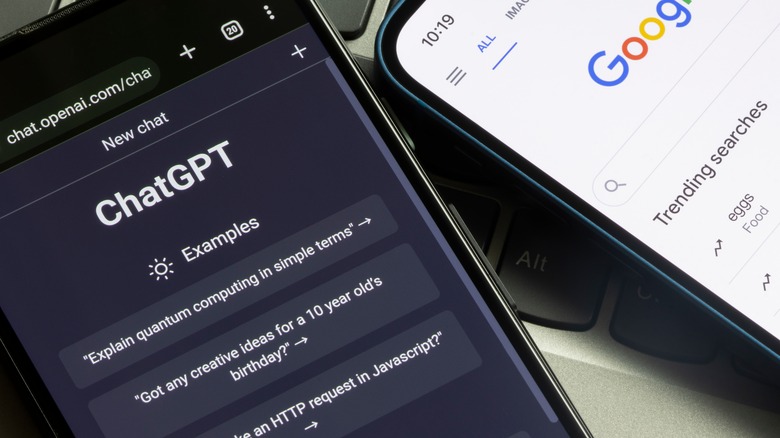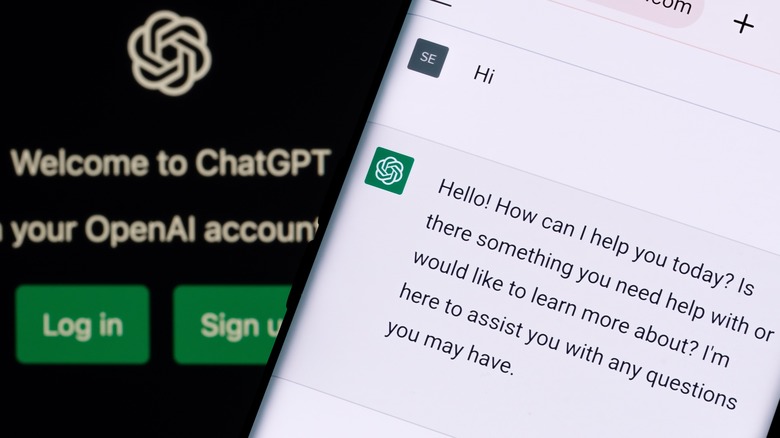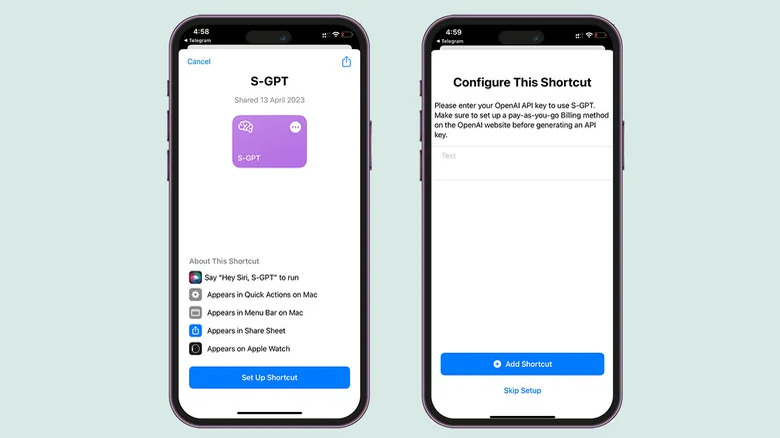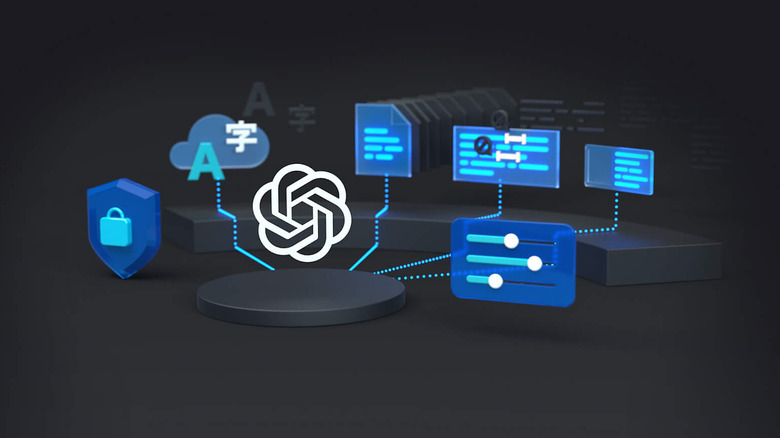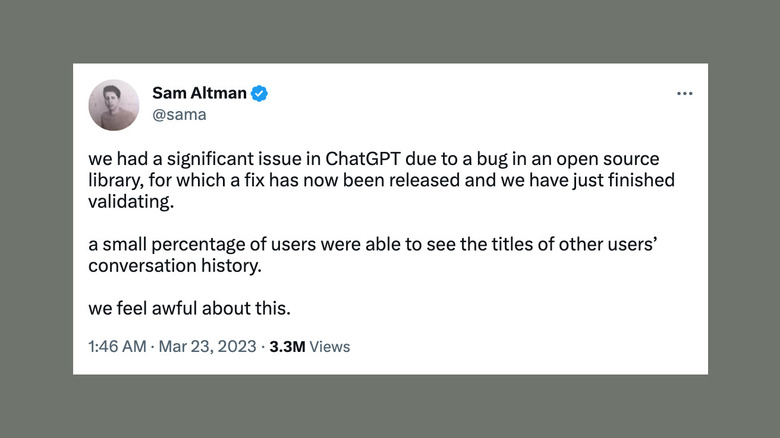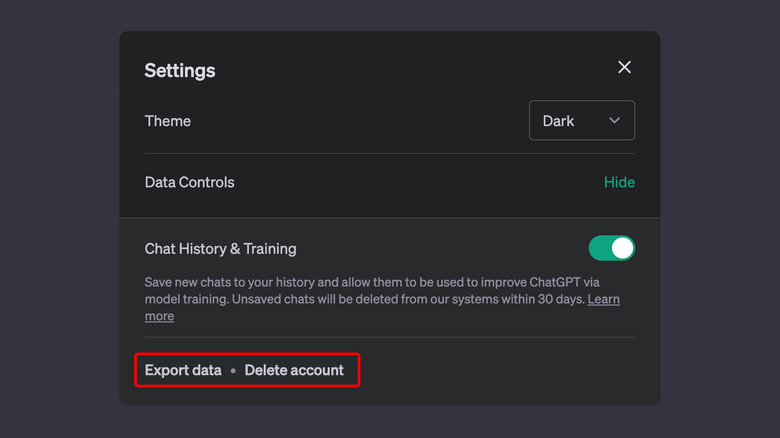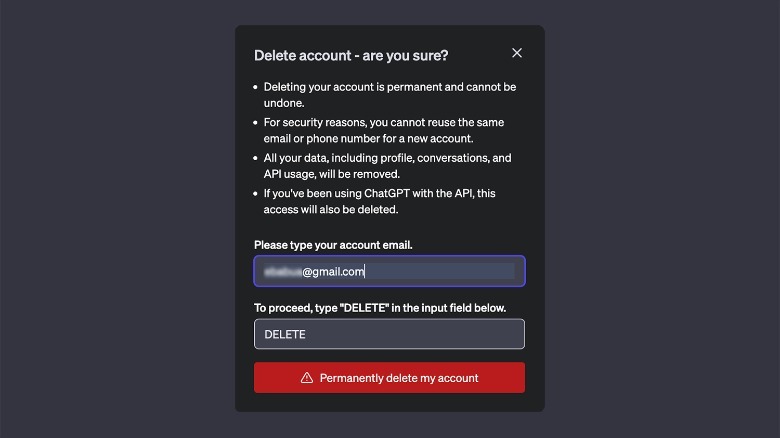What Does ChatGPT Do With Your Data And Chat History?
The presence of ChatGPT is a widespread topic of discussion on the internet, but it has some severe privacy repercussions that cannot be overlooked. ChatGPT and similar chatbots have recently soared in popularity for their ability to enhance our workflows and take care of the grunt work, while OpenAI's large language model (LLM), dubbed GPT, has also been used as the framework to develop countless useful applications. But at the same time, generative AIs have raised eyebrows for using publically available but copyrighted information and relying on users' data to train their chatbots. That is definitely one of the tradeoffs for using the excellent tool for free.
After recent threats over bans in Europe, ChatGPT creator OpenAI recently added the option for users to disable chat logging and delete their chat history. It is definitely worth checking these options out if you value your privacy, but the step also raises a crucial question: how does ChatGPT use your data, and what exactly does it harness from your chat history?
How do ChatGPT and similar AIs use your chat history?
Generative AI models such as ChatGPT are claimed to improve as more users interact with them. In one of its support pages, OpenAI admits to using user data such as prompts, follow-up responses, images, and other generated responses to become "more accurate and better at solving your specific problems." These data usage rules apply to ChatGPT and OpenAI's image-generating tool, DALL-E.
OpenAI says this data is not utilized for advertising or building shadow profiles for targeted ads. It notes, "ChatGPT, for instance, improves by further training on the conversations people have with it, unless you choose to disable training."
OpenAI's data usage policy further mentions that from the data it stores from interactions via ChatGPT or DALL-E, it takes steps to weed out personal information before using the data. However, anyone unconvinced about OpenAI's insisted good intentions is free to disable data logging and sharing on ChatGPT using the recently added options.
What about apps that use OpenAI's APIs?
Besides data processed by its own apps, OpenAI clarifies that it does not use data from applications that use its APIs, such as the Siri replacement on iPhone. This means the company does not use or store data from any third party that uses OpenAI's GPT-3.5-turbo or GPT-4 models to power its applications — unless you explicitly opt in for your data to be used to improve such applications. Even in the case where you voluntarily submit your data, OpenAI claims to retain it for only 30 days and then delete it afterward; it may, however, store this data if it is "required by law."
Additionally, OpenAI says the chat requests and responses using OpenAI APIs are encrypted using Transport Layer Security or TLS. However, that does not guarantee that the app you're using does not secretly eavesdrop on your conversations. To be sure, you must check each app's data usage policy individually. Notably, third-party tools may operate with a login that differs from your ChatGPT account and may store details, including your personal data and how you interact with the tool at their own end.
Who can access your ChatGPT data?
The artificial intelligence company admits it shares the data may be shared outside of OpenAI. It says the content is shared with "select group of trusted service providers that help us provide our services." While the document does not specify which partners are being referred to, there is a high chance that Microsoft is one of them.
Microsoft is the largest stakeholder in OpenAI and uses the latest GPT-4 model to power its Bing Chat service. It came into the picture when Elon Musk, who helped co-found the startup, backed out of his promise to furnish a $1 billion fund even after his departure. All of OpenAI's chats are executed through Microsoft's Azure cloud servers, with the company listed as one of OpenAI's subprocessors. By definition of a "subprocessor," Microsoft can access the data its data centers process.
Microsoft also offers its Azure OpenAI Service to enterprise clients, allowing them to integrate ChatGPT and DALL-E into their workflows. The data is stored by Snowflake, a U.S.-based cloud company with data warehousing services.
OpenAI admits that a "limited number of authorized personnel" within the company can also see and analyze user data, which may be used to tune responses, flag abuse or security breaches, offer support for specific issues, or comply with legal demands. The data is only available to authorized employees on a "need-to-know basis," but further details are unavailable.
About OpenAI's APIs, the company says some employees "as well as specialized third-party contractors that are subject to confidentiality and security obligations," have access to users' data, but this is to help them investigate and assess incidents of abuse. This data may also be retained past the 30-day window.
Is my data safe with OpenAI?
The question is not simple to answer, and your confidence may depend on your level of trust for OpenAI and its allies, such as Microsoft and Snowflake. Regardless of the company's intent, it already suffered a security incident in March 2023, exposing a users' chat histories to others. OpenAI CEO Sam Altman notified through Twitter that the issue occurred due to a bug in an "open source library" without elaborating. In a blog reporting the incident, OpenAI also spoke about how the same bug exposed the last four digits of some paid users' credit card numbers by accidentally sending subscription emails to the wrong users.
OpenAI claims to have fixed the bug and also opened a bug bounty program with rewards of up to $20,000 for bug hunters. Nonetheless, it is never a good idea to share any personal information, such as your name, address, phone number, or financial details, in a chat with ChatGPT or any similarly intelligent chatbot to keep it secure from being leaked.
If you have shared any private information with the chatbot, OpenAI also gives you the option to delete your account. In response to a temporary ban in Italy, OpenAI added the option allowing privacy-conscious users to prevent ChatGPT from storing chats. If you also wish for the company not to store or use your chats to train its AI, you can clear existing conversations and disable logging.
How to disable chat history and delete your ChatGPT account?
Go to ChatGPT client and log in with your OpenAI account. On the main chat window, click your profile picture in the bottom left corner, and then click Settings.
A dialog box now pops up; click "Show" next to Data Controls. This expands the dialog box with an option that reads "Chat History & Training." Click the toggle next to this option to stop OpenAI from storing your future chats.
If you want to back up your previous interactions with ChatGPT, click the "Export Data" button, and you will receive a downloadable copy of your chat history over email.
Furthermore, to delete all your previous chats from OpenAI's database, return to the main ChatGPT interface and click your profile picture again. Next, click "Clear conversations," followed by a confirmation to decimate your chats forever.
If you wish to delete your ChatGPT account, follow the steps above to show the Data Controls. Now, click "Delete account" under Chat History & Training. Remember, this step is permanent, and you can't recover your account — or create another account using the same email — after deleting it once.
Next, in the new dialog box that opens, enter your email ID and write "DELETE" in all caps in the following text field. Then click Permanently delete my account to wipe it forever.
